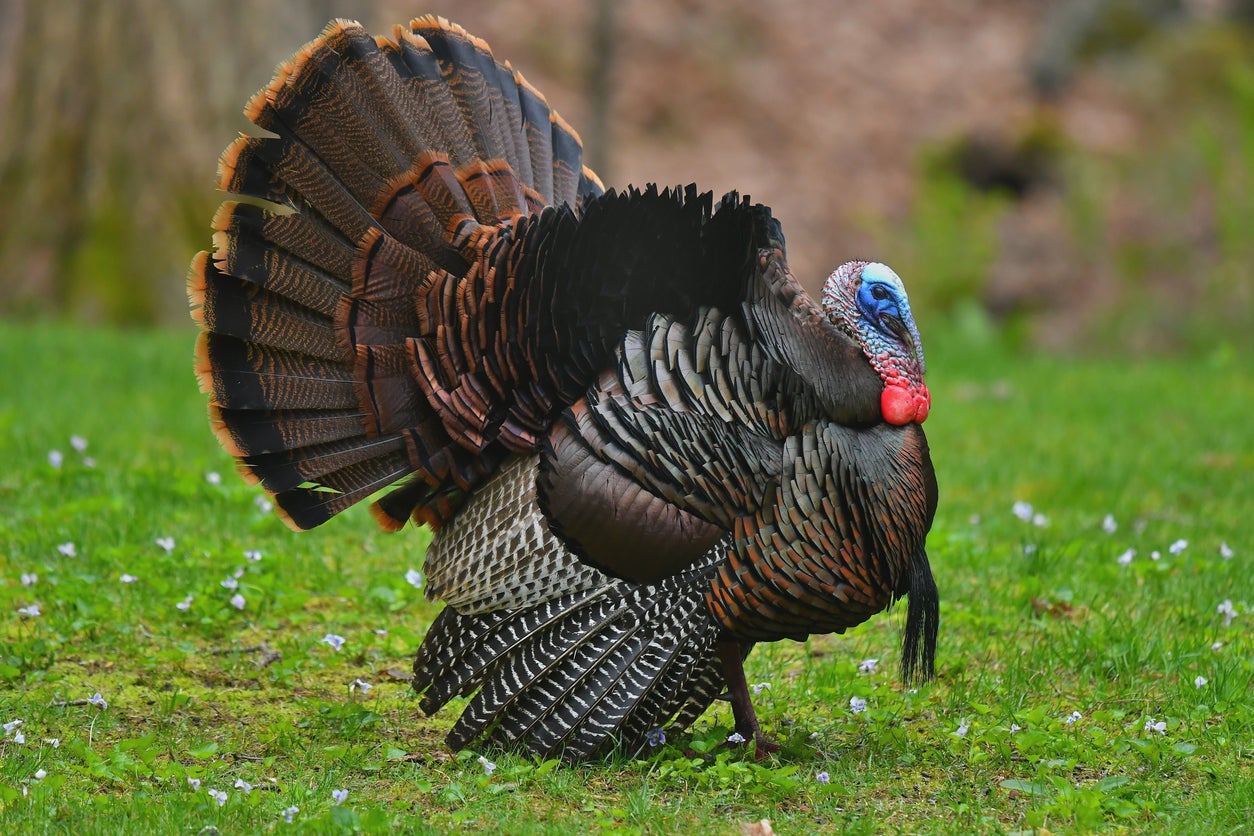Turkeys are taking over US college campuses
Gobble gobble – students have set up social media accounts to document wild turkey movements around their universities

Wild turkeys have been spotted at universities across America, they’ve been seen on campuses everywhere from the University of Minnesota and Boston University to the University of California – and social media loves it.
Students have set up numerous Instagram accounts to document wild turkey movements around their colleges, including on dedicated to Boston University’s turkeys, started by Rachel Smith and Izzy Weinber
@turkeyspotting shows the big birds roaming and laying around campus grounds, standing in traffic and balancing on railings.
“Submit ur turkeys TODAY!” states the page in association with the university’s satirical paper The Bunion.
“Turkeys are inherently funny animals,” Smith told HerCampus.com. “We get a lot of people submitting videos of the turkeys blocking traffic or wandering down Comm Ave,” she continued. “It’s fun how excited people get. The page is cute and fun to do.”
Wild turkeys have seen a resurgence across the US, thanks to conservation laws. The birds were almost extinct at the turn of the 20th century, due to overhunting. Now there are in the region of 7 million wild turkeys in the US, according to the National Wild Turkey Federation. Wild turkeys can be spotted in every US state except Alaska.
As the population has grown, sighting of the feathered fowls have become more commonplace in cities and neighbourhoods, and, it appears, the big birds have a particular penchant for further education.
“College campuses are just ideal habitat,” professor, and wildlife specialist, David Drake of the University of Wisconsin told The New York Times. He’s spotted flocks of turkeys hanging out at the student apartments.
“You’ve got that intermixing of forested patches with open grassy areas and things like that. Nobody’s hunting,” he explained.
Instagram page @turkeysofumn, run by Paige Robinson, is dedicated to the turkeys of the University of Minnesota. “Just sharing the love of campus turkeys one post at a time.” It states. The page has turkeys getting up to plenty of mischief, spreading their handsome tail feathers, humorously crossing the sidewalk in single file and it even has video of fluffy yellow poults (baby turkeys) exploring the world for the first time.
Students have gone out to bat for their feathered fellow campus inhabitants. Will Moon, a student at Sacramento State University in California, wrote a heartfelt op-ed piece on why they “should be accepted by the community.”
Writing in The State Hornet about a council decision to trap and relocate the birds away from urban areas he said: “Turkeys may not be as cute as squirrels or chickens and their babies, but that doesn’t mean they should be exiled”.
Join our commenting forum
Join thought-provoking conversations, follow other Independent readers and see their replies
Comments
Bookmark popover
Removed from bookmarks